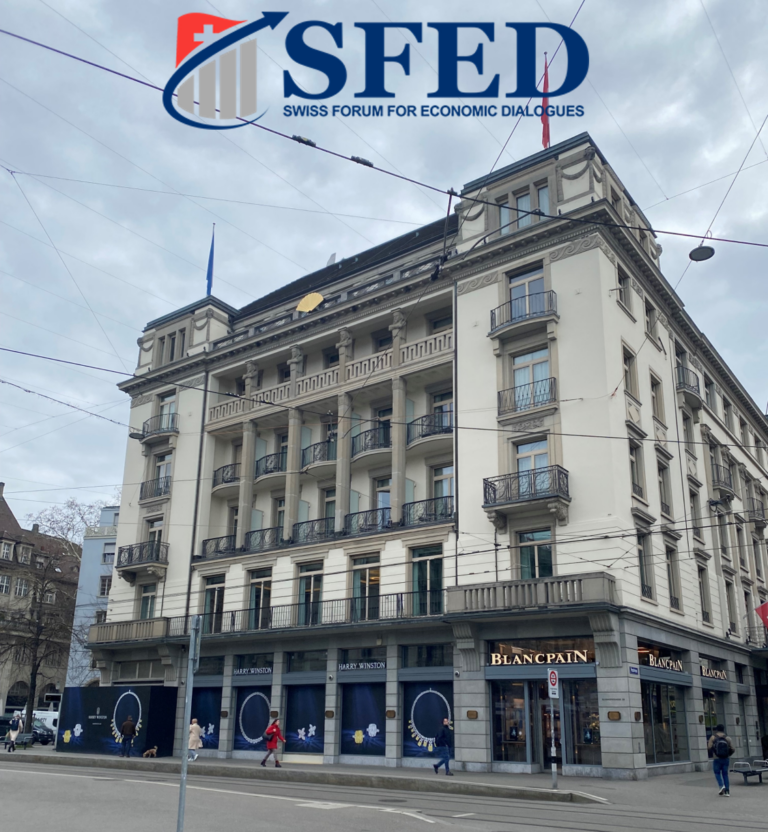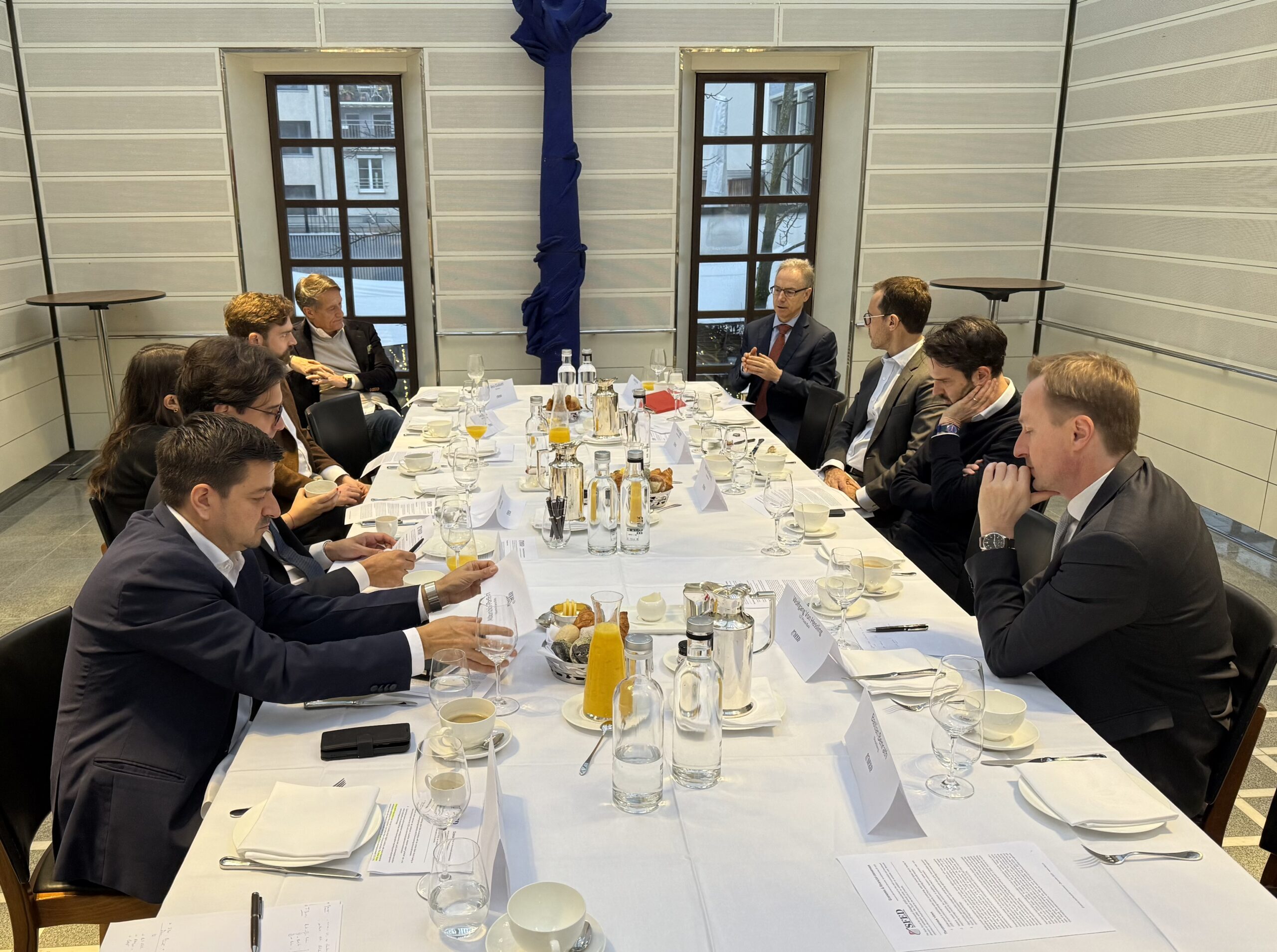Insights from SFED’s inaugural roundtable of Zurich-based investment leaders
A New Forum for Economic Dialogue
The SFED association (Swiss Forum for Economic Dialogues) held its first quarterly roundtable of chief economists and investment directors from Zurich’s financial sector on March 20, 2025. For this inaugural edition, 15 participants shared their market views and convictions over a 90-minute discussion. The panel consisted of four macroeconomists and ten chief investment officers.
The represented institutions included UBS, Baloise AM, Zurich Insurance, ODDO BHF, Schwyzer Kantonalbank, Axioma, EFG, Origins Capital, Divas AM, Julius Baer, Maverix, Kaleido, Vontobel, and Herculis.
Macroeconomic Outlook: Fragmented Growth and Diverging Policies
The initial discussions focused on the economic environment. Global growth is expected to slow this year. In the United States, economic activity is projected to grow by 2% in 2025. The risk of a recession has increased due to declining confidence among private sector actors. This factor could limit any further inflation acceleration and justify additional Fed rate cuts in 2025.
In the eurozone, increased public spending could lead to upward revisions in growth forecasts as early as 2025, particularly in Germany. In Switzerland, negative rates seem unlikely at this stage, and a slight rebound in activity is anticipated in 2026, driven by the industrial sector. Meanwhile, in China, deflation is expected to persist due to the slowdown in global trade.
Strategic Allocation: Holding on to Equities and Gold
Given the diversity of the financial institutions represented, establishing a clear investor consensus was challenging. However, investment specialists emphasized the importance of prioritizing strategic positioning over tactical moves, particularly by remaining invested in equities.
In the fixed income space, the majority favored maintaining a short duration. Regarding precious metals, gold remains attractive due to strong physical demand from central banks, persistently high expected inflation, and ongoing fiscal and geopolitical risks.
Key Investment Themes: Technology, Robotics, and Private Markets
Investment themes such as artificial intelligence and robotics were also discussed, with a particular focus on their long-term positive impact on economies and the investment opportunities they present in equity markets and private equity.
Participants highlighted that such innovations are not only reshaping productivity dynamics but also opening up new avenues for portfolio diversification — especially in a world of persistent inflation and policy shifts.
Insights from the Roundtable
Sandro Dittli, CIO Julius Baer Nomura Wealth Management: “Multiple radical policy pivots are underway across the major regions, which encourages us all the more to hold a regionally diversified equity portfolio. This includes, in particular, Swiss equities as a store of value. Tariffs are an important piece of the current investment puzzle, but there is a lot more happening. The Trump administration has prescribed a ‘detox’ for the US economy that has become addicted to government spending. Tariffs are being used as a policy tool to engineer a radical fiscal rebalancing. This end of fiscal profligacy in the USA is coupled with the end of fiscal austerity in Europe. It explains the implosion of the unanimous US exceptionalism consensus and the shifts in markets from USA to the rest-of-the-world. Whether these shifts will continue depends on whether the US slips into a recession, which would affect all stock markets. The outcome is uncertain, but a deep recession is unlikely due to healthy US private sector balance sheets. In the meantime, we maintain a neutral risk exposure and follow our policy of diversification away from US assets into assets such as Swiss equities.”
Pierangelo Franzoni, Origins Capital: “We see current trade tariffs conflicts and European fiscal policies as clear signs of de-globalization trends, confirming structurally higher inflation and interest rates. However, these shifts, combined with technological advancements boosting productivity, present exciting opportunities. This environment calls for a fundamental bottom-up investment strategy in equity and credit, and increased support for private markets, paving the way for innovative and resilient investment opportunities.”
Arthur Jurus, ODDO BHF: “We believe the global economy is entering a phase of slower, more fragmented growth, marked by persistent inflationary pressures, geopolitical shifts, and the ongoing recalibration of monetary policies. We remain constructive on risk assets, especially equities, where we focus on quality. We see long-term value in sectors that are either structurally supported — such as healthcare and technology — or geographically positioned to benefit from policy tailwinds such as in Switzerland. On the fixed income side, we seek protection and carry in short-duration bonds. Gold remains attractive due to continued central bank demand for physical gold, rising trade tensions, and lower U.S. 10-year yields.”




